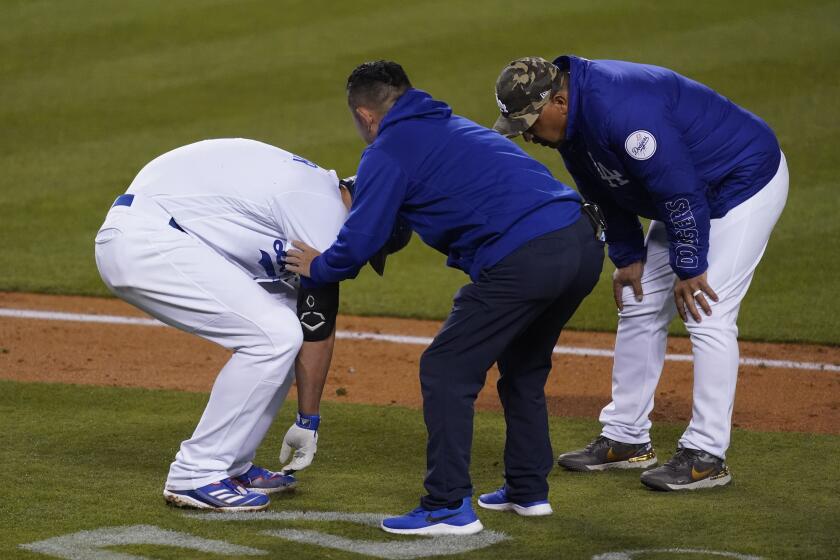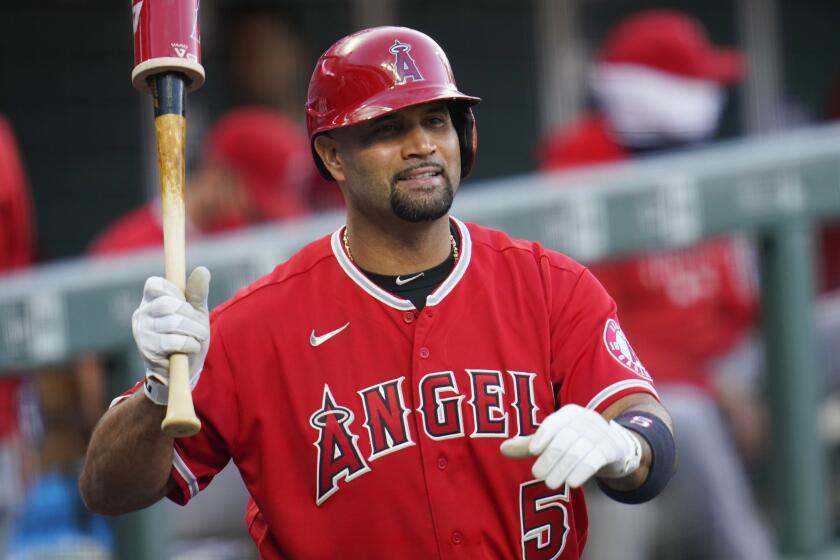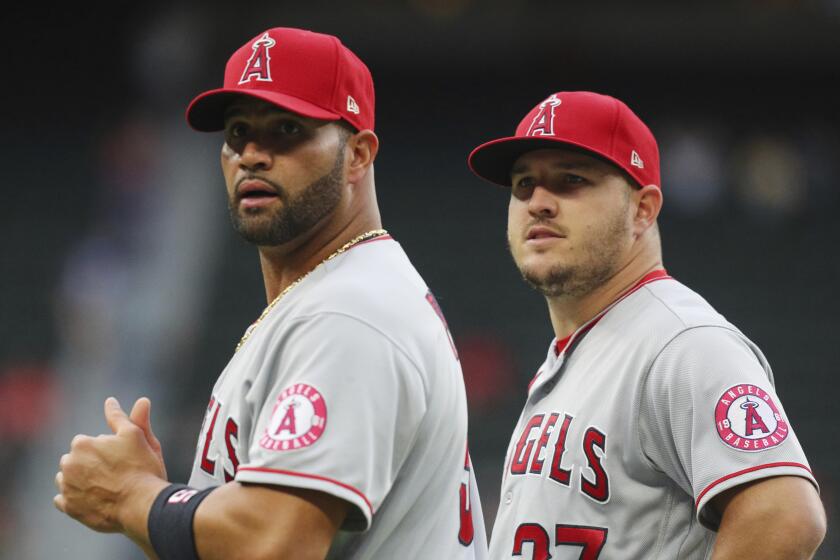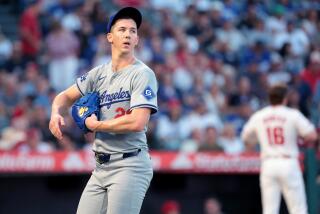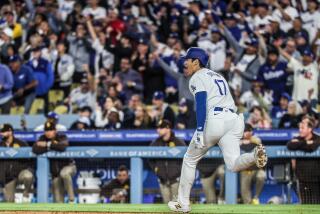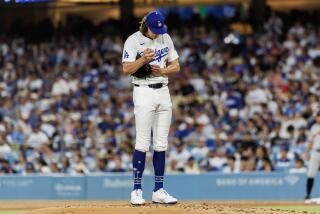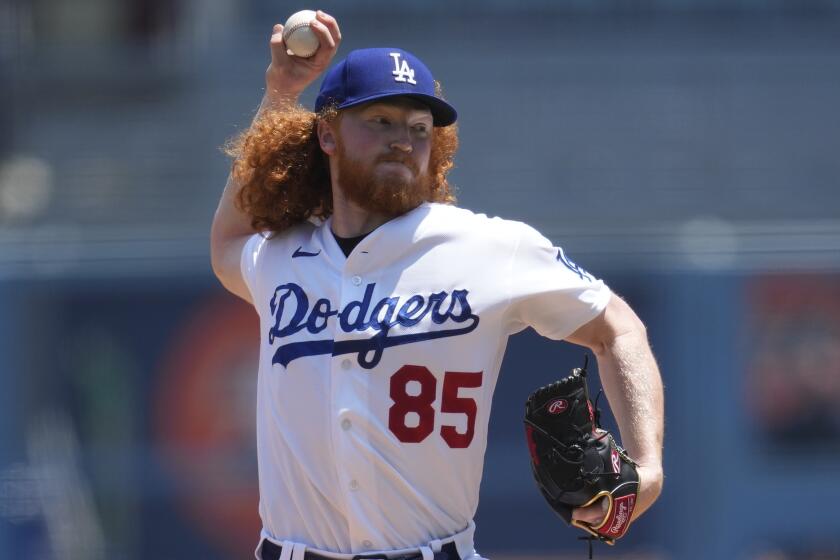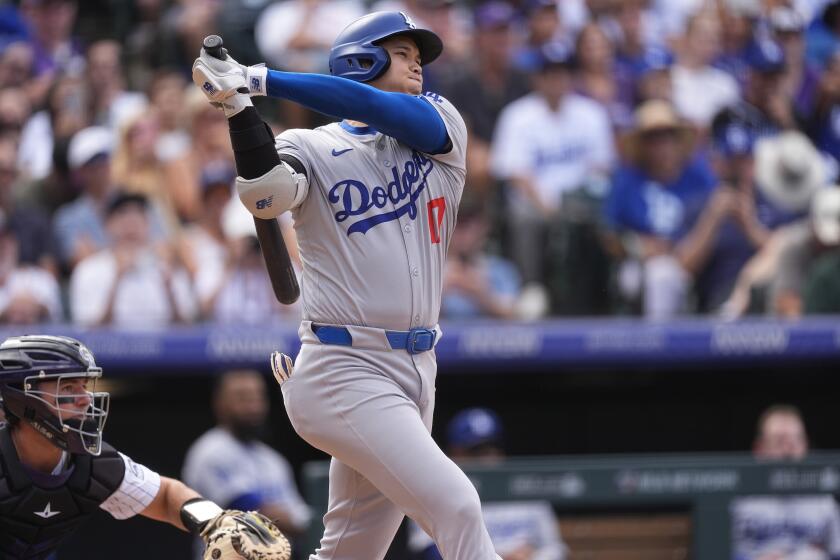Column: Corey Seager’s injury threatens to expose the Dodgers’ roster weaknesses
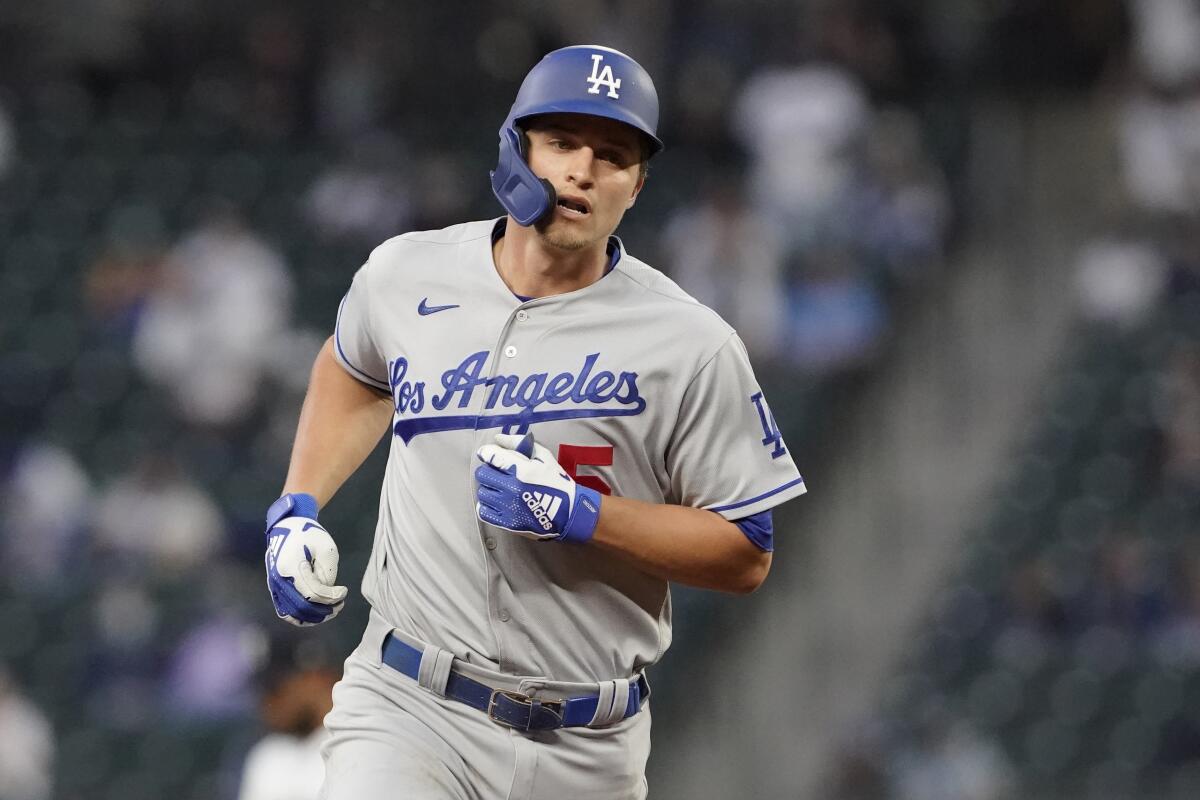
Corey Seager could be down a while.
Maybe around 52 days.
That’s the average time missed by players who fractured their metacarpals when struck by pitches, according to a study published by the American Journal of Sports Medicine in 2018.
The research, conducted by Minnesota Twins physician Christopher Camp and other sports medicine professionals, tracked hit-by-pitch injuries in major and minor league baseball from 2011-2015.
“The floor,” manager Dave Roberts said, “is four weeks.”
Missing one of the two best hitters on the roster for one to two months is never welcome.
Missing one of the two best hitters on the roster when a team is in the position the Dodgers are should induce a high level of anxiety.
Dodgers lose to the Miami Marlins, 3-2, on one swing by Adam Duvall, but worse is Corey Seager out at least four weeks with fractured pinky finger.
What’s unfortunate for them is they were about to take off, Seager and Mookie Betts starting to look more like themselves in the batter’s box and the offense becoming a worthy complement to the team’s All-Star rotation.
Seager batted .375 over the last week, and the Dodgers won five of six games.
Seager was placed on the injured list Sunday and the Dodgers dropped their series finale to the Miami Marlins, 3-2, their offense reverting to what it was in the 20-game stretch during which they lost 15 times.
Without Seager, the Dodgers still have Betts, still have the best rotation in baseball, and should be able to pick up wins against the likes of the Marlins and the Arizona Diamondbacks, their next opponent.
That won’t suffice, however.
The Dodgers are in a legitimate three-team race in the National League West with the San Francisco Giants and San Diego Padres.
They have seven games against the first-place Giants over the next 14 days.
Fifty-six days remain until the All-Star break, by which time the Dodgers will have played a combined 12 games against the Giants and Padres.
The Dodgers’ 5-15 slide coincided with slumps by Seager and Betts, which wasn’t a coincidence. Seager batted .247 over that period and Betts .243.
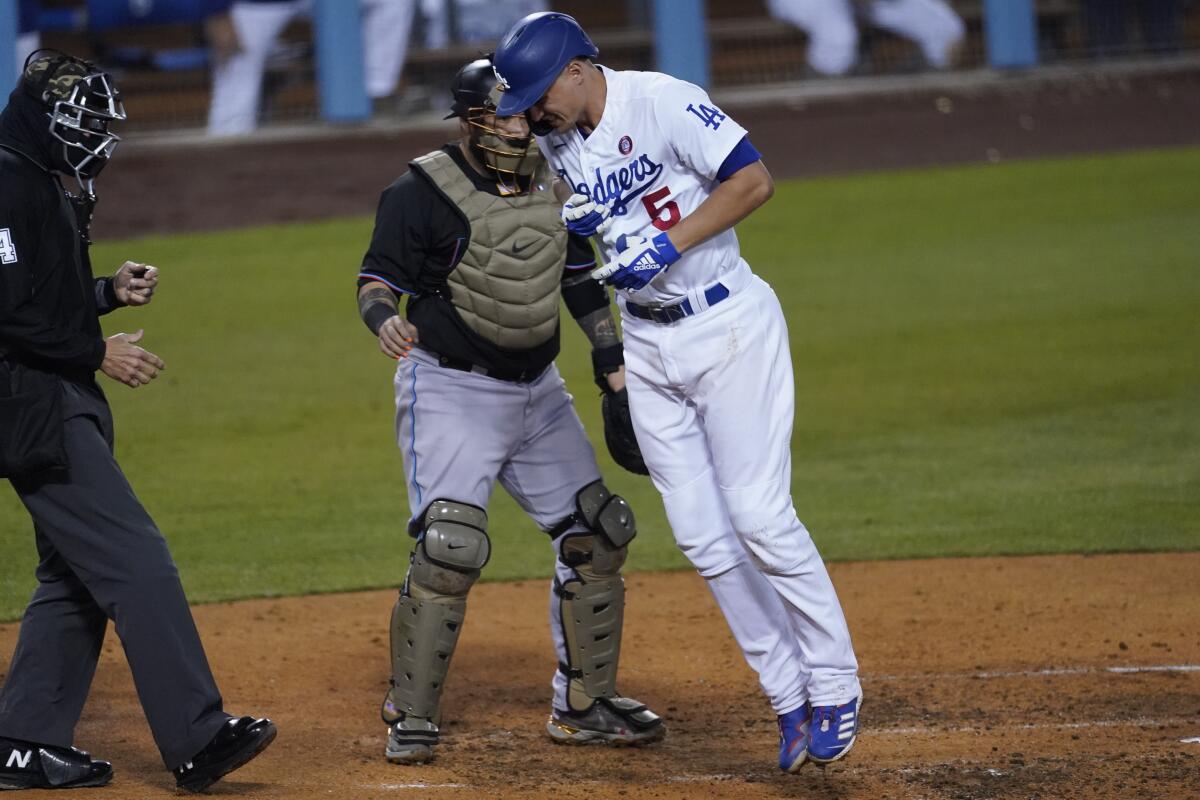
Part of that comes with the territory. Betts has a $365-million contract and Seager will be looking for his own monster deal as a free agent in the coming offseason.
But the team’s dependence on them is elevated this year.
One trademark of the Dodgers under Andrew Friedman has become a weakness: The margins of the roster.
Role players aren’t producing the way they have in past seasons. The departures of Kiké Hernandez and Joc Pederson broke up productive platoons in the infield and outfield. Injuries have further eroded the depth.
The latest wave of players to come up from the farm system haven’t contributed much offense.
While Friedman’s drafts have produced Walker Buehler, Dustin May and Tony Gonsolin, the best hitter picked has been Will Smith. Since Smith is the team’s second-choice catcher behind Austin Barnes, his bat isn’t in the lineup every day.
Infielder Gavin Lux, who is batting .125 against left-handers, is a future platoon player.
Albert Pujols is the latest iconic player to put on a Dodgers uniform, and the team gives him a prime opportunity to win one more World Series title.
D.J. Peters is batting .200, Sheldon Neuse .186 and Luke Raley .171.
Zach McKinstry looked like a find and batted .296 with three home runs and 14 runs batted in over his first 17 games, but went on the injured list because of a strained side muscle.
Edwin Rios, a solid bench player last year, was batting .078, his decline in performance attributed by Roberts to a shoulder injury that will require a season-ending operation.
Asked what separates a bench that’s productive from one that’s not, Roberts replied, “Experience.”
Roberts pointed to Matt Beaty, who is batting .327.
“I think that you’re seeing Matt Beaty in his third season with experience, being able to handle the role and thrive,” Roberts said. ‘We’ve lost a couple of guys that got used to the role and performed in that role, a tough role, not being an everyday guy. So that’s kind of what it is, you’ve got to kind of take your lumps while you’re going through it.”
Albert Pujols signing with the Dodgers might not make a lot of sense on the surface, but the Dodgers have plenty of reasons to sign a player like him.
Of course, the shortcomings on the bench are in focus because of what’s happened on the other end of the roster. The peripheral players became more important when Betts and Seager were slumping; they remain important because Cody Bellinger is still out with a fractured leg.
The transactions over the weekend told the story of the team, the Dodgers picking up Albert Pujols and Yoshitomo Tsutsugo.
Adding a veteran such as Pujols or a reclamation project such as Tsutsugo would have been viewed as luxuries in recent years, moves a big-money team makes because there’s minimal downside. While the financial risk remains small this year, there will be consequences to them not performing.
Fifty-two days can feel like an instant. Fifty-two days can also feel like an eternity.
How time passes for the Dodgers over the next two months will be dictated by whether they can figure out how to replace a reasonable amount of Seager’s offense.
More to Read
Are you a true-blue fan?
Get our Dodgers Dugout newsletter for insights, news and much more.
You may occasionally receive promotional content from the Los Angeles Times.

